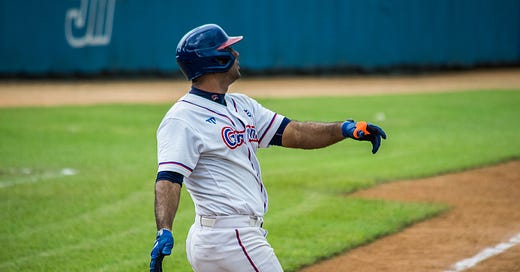It's Friday, and we're back to analyze the main moments of this postseason that has been crazy between unexpected errors, comebacks, wild rallies and home runs that are making the scoreboard resound.
Las Tunas 3, Granma 7
Well, this seemed more like a battle between the swing of Guillermo Avilés and the perseverance of 45-year-old left-hander Leandro Mart…




